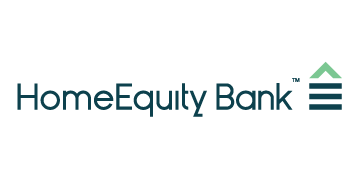
PAID CONTENT
While the overall divorce rate in Canada has been steadily declining, divorces among older couples who have been married for many years – “grey divorces” – are on the rise. According to Statistics Canada, the number of divorced Canadians over age 65 grew by almost 80% from 2010 to 2020.
Financial challenges of a grey divorce
Couples divorcing later in life face unique challenges. They not only have to deal with the breakup of a relationship – with all the emotional and familial issues that surround it – but also the breakup of a financial partnership. These spouses have been making financial decisions as a unit for many years – from building equity in their home, to saving for retirement, to helping their children fund their education. Indeed, the longer the marriage, the greater the financial ties between partners.
When that financial union is broken, clients will need to find the cash flow for a host of new expenses, including the legal costs of divorce and the costs associated with starting over, such as finding and furnishing a new home and covering previously shared expenses like monthly bills and insurance. Skyrocketing inflation is also an added challenge of starting over in current times.
Staying in the marital home
Then there are the costs associated with one spouse deciding to continue living in the marital home, which for many retirees represents continuity and familial and emotional connection. Financing the buyout of the family home – especially if it has increased in value over the years – can be significant. As retirees typically don’t have the means to generate new wealth and face difficulties borrowing because of a lack of employment income, many will be tempted to dip into their retirement savings or investments to cover the cost of a home buyout. This can lead to large taxable events and reduce their longer-term retirement savings – as well as impact your assets under management.
How a reverse mortgage can help fund a buyout
The good news is there is an innovative financial tool – the CHIP Reverse Mortgage by HomeEquity Bank – which can help your clients tap into the equity they’ve built in their home to buy out the other spouse. With the CHIP Reverse Mortgage, Canadian homeowners age 55+ can access up to 55% of the value of their primary residence and turn it into tax-free cash without having to move or sell the home. Plus, there are no monthly mortgage payments to make, which frees up additional cash.
Provided the other spouse agrees to come off the title of the shared home, and upon the execution of a legally binding settlement agreement, the spouse who remains in the marital home can use the proceeds of the reverse mortgage to buy out the other spouse. Since the money received from a reverse mortgage is a loan, it’s not added to a client’s taxable income and it does not affect benefits such as Old Age Security (OAS). The spouse who is bought out can even use the proceeds of the settlement to put a down payment on a different home.
Retain clients and assets during a divorce
Clients will look to you for guidance and advice on how to stay in their marital home and prepare for their next stage in life. Providing them with sound advice and options can help you retain their investment and retirement assets after the divorce. Here are some other ways to assist:
- Advise your clients to opt for an amicable, uncontested split to save on legal fees (the average cost of a contested divorce in Canada is about $15,000). The more lawyers get involved, the higher the fees. An amicable split will help both parties with their cash flow at an uncertain time in their new lives.
- Update the individual financial plans of both spouses in light of their changed marital situation.
- Review clients’ beneficiary designations on their life insurance policies and retirement accounts and advise them to update their wills.
- In longer-term marriages, one spouse is often more involved in the financial and investment decisions than the other. Help the less financially literate spouse learn about investing and money matters by providing them with educational materials and information about seminars and online courses.
To learn more about the CHIP Reverse Mortgage and how it fits in your clients’ financial plans, visit us online.
Ready to provide your clients with a tax-efficient solution that will help them live their retirement on their terms? Contact a Business Development Manager today.
